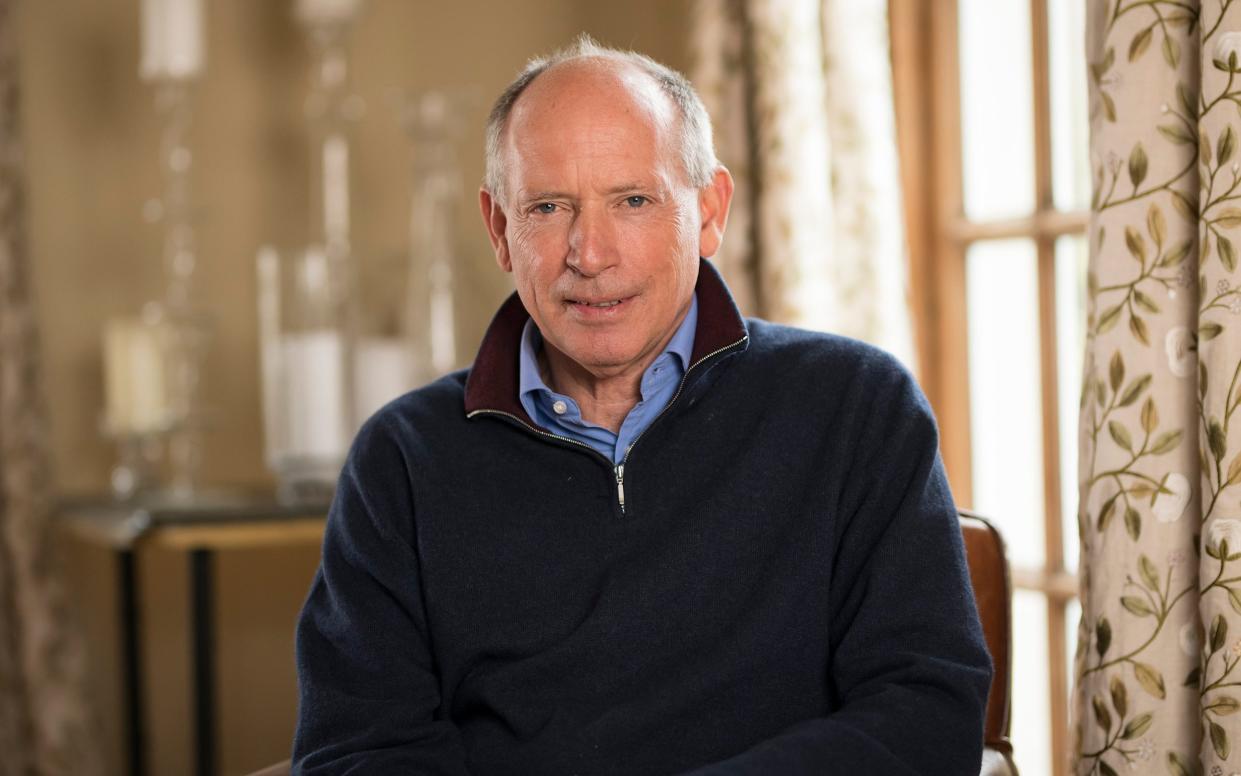Channel 4 in diversity row over white bosses

Channel 4 has launched a protest against the appointment of four white directors to its board in a row over ethnic diversity.
Lucy Frazer, the Culture Secretary, on Monday approved the appointment of five new non-executive directors to join the broadcaster’s board, four of whom are white.
The move sparked criticism from Sir Ian Cheshire, the chairman of Channel 4, who warned that the board was lagging behind its own diversity targets.
In an internal memo seen by The Telegraph, Sir Ian said: “These appointments will improve representation on the board but do not yet meet the levels of representation throughout the rest of the organisation.
“Appointments to the board are not ultimately in our control due to procedural reasons but we are committed to continuing to push for further progress.”
Following the appointments, Channel 4’s board will have 15 members, of whom 14, or 93pc, are white. Under its remit to represent minorities the broadcaster has an overall target to draw 20pc of its staff from ethnic minorities, 12pc from people with disabilities and 6pc from those who identify as LGBT.
The targets compare with 18pc of the general population who are ethnic minorities, 18pc who have disabilities and 3pc who identify as LGBT.
Among the new board members is Boots chief executive Sebastian James, an old Etonian and former Bullingdon Club member who is close friends with Lord Cameron, the Foreign Secretary.
Advertising industry veteran Dame Annette King, Warner Records UK boss Alex Burford and entrepreneur Debbie Wosskow were also named as non-executive directors.
Tom Adeyoola, a tech entrepreneur who launched Metail, a start-up that allows retailers to showcase their clothes on AI-generated models, was the only non-white appointment. He attended St Paul’s School in London and is now on the board of governors.
A spokesman of the Department for Culture, Media and Sport (DCMS) said: “DCMS is absolutely committed to advancing equality of opportunity in its public appointments, to ensure that boards of public bodies benefit from a range of diverse perspectives and are representative of the people they serve.
“Appointments to the Channel 4 board were made by Ofcom following a fair and open competition, with approval from the DCMS Secretary of State.”
Channel 4 was founded under Margaret Thatcher in 1982 with a remit to disrupt the UK broadcasting landscape. It has a statutory obligation to serve young and diverse viewers, as well as those from lower socio-economic backgrounds.
The Government last year abandoned plans to privatise the broadcaster over fears its financial model, under which is publicly owned but entirely commercially funded, was not sustainable. Instead it was forced to move hundreds of staff to Leeds, Glasgow and Bristol to better reflect Britain’s regional diversity, in a shift that was initially strongly opposed by executives.

The broadcaster’s board members, who will serve a three-year term, are selected by media regulator Ofcom but are subject to final approval by Culture Secretary Lucy Frazer.
The diversity row threatens a fresh headache for Lord Grade, the Ofcom chairman and former Channel 4 boss, who has ruffled feathers across the TV industry after coming out in defence of start-up broadcaster GB News.
Lord Grade sat on a panel of interviewers for the latest board appointments alongside Sir Ian Cheshire, academic Elizabeth Watkins and former broadcasting executive Baroness Usha Prashar.
The recruitment process was run by executive search agency Russell Reynolds.
Asked about the diversity of Channel 4’s board by MPs in November, Sir Ian said he had pushed for the issue to be taken into account during the appointment process.
He added: “I cannot control the outcome but I can certainly control the input to that decision making, which I am glad we have done.”
On Monday he came under fire from Conservatives over his push for more minorities on the Channel 4 board.
Sir John Hayes, the chairman of the Common Sense Group of backbench Tory MPs, said: “This is very odd and seems to me like it would breach anti-discrimination and equality legislation. It is not for Sir Ian to discriminate against people on the basis of their colour, which seems to be implicit in his comments.
“What I will be doing is writing to the chairman of the Equalities Commission and drawing the comments that the chairman has made to his attention. These remarks seem to me to be certainly highly contentious.
“The implication of what he’s saying is that he will discriminate against people of a certain colour, regardless of ability, which is not permissible in law.”
Greg Smith, the Conservative MP for Buckingham, said: “It is imperative that appointments are always made on merit. These appointments clearly show that to be the case.
“Whilst Channel 4’s targets are meritorious, you can’t always use false metrics where circumstances may not have permitted them to have even been there in the first place. One out of five appointees not being white is not far off being proportionate to the country.”
It is not the first time the public service broadcaster has faced political controversy over boardroom diversity.
In 2016, then-chief executive David Abraham took aim at the Government over its decision to block the appointment of Althea Efunshile, a former senior executive at Arts Council England, to Channel 4’s board in favour of four white men.
Ministers were forced to perform a U-turn the following year following an embarrassing backlash. However, In 2021, the Government blocked Ms Efunshile’s re-appointment, alongside that of film producer Uzma Hasan, leaving Channel 4 with an all-white board.
Concern over the make-up of its board comes as Channel 4 plots its biggest round of job cuts since the financial crisis as it grapples with a deep advertising downturn. Fears of such a crisis were behind the abandoned moves to privatise Channel 4.
The broadcaster will slash up to 200 roles as it looks to cut costs against a darkening backdrop for traditional TV channels.
Cuts will fall heaviest on the broadcaster’s traditional broadcast TV division as the company increases its focus on streaming and social media channels.
In a memo to staff on Monday morning, chief executive Alex Mahon said Channel 4 would “accelerate our existing plans to become a genuinely digital-first public service broadcaster”.
She added: “Given all the market change and complexity that we need to adapt to, there will be an impact on jobs at Channel 4.
“I know many people are concerned about this. But getting our organisation into the right shape and the right size for the digital world is a process we have been engaged in for some time.
“The market is shifting fast, and, as we always have done, Channel 4 has to move fast to adapt and imagine our future for a world that will continue to change.”


